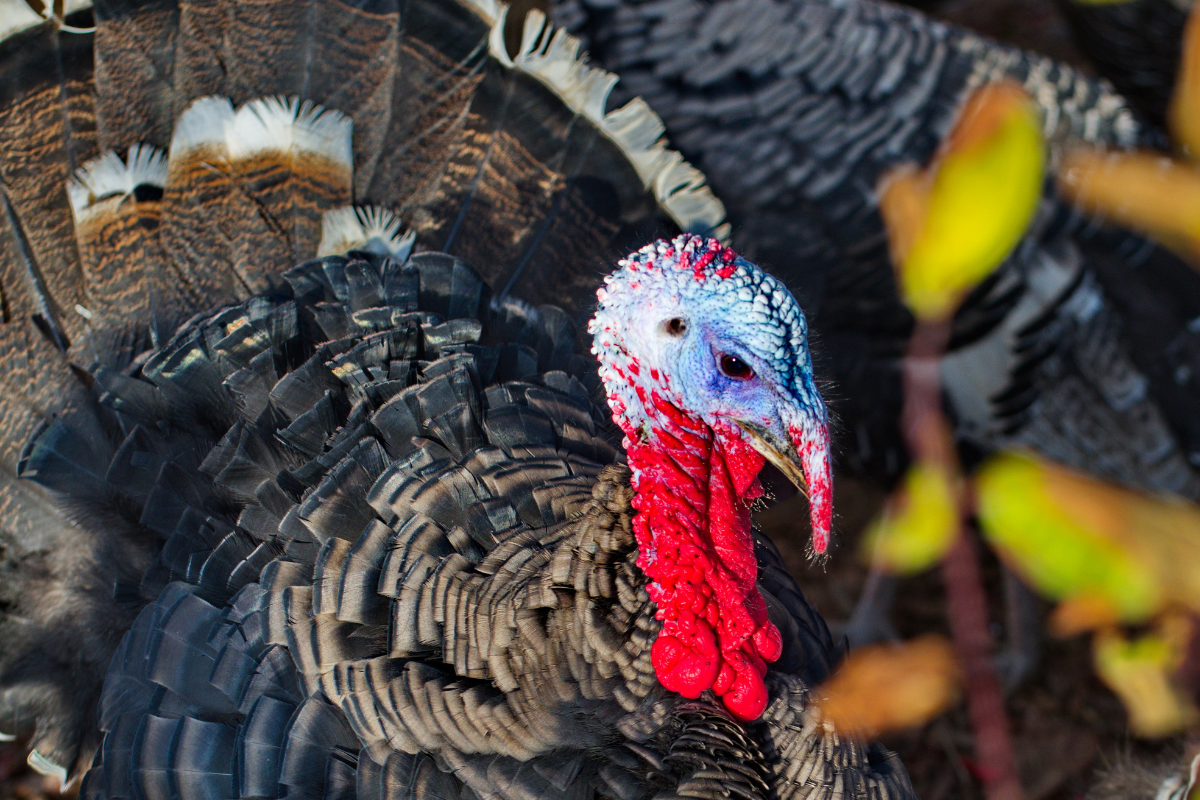by Priscilla Feral
Don’t get your kids out of the room. We’ve got a message to tune in ahead of your holiday meal.
At least 40 million turkeys will be sold this Thanksgiving – turkeys whose lives ended after 12 to 14 weeks. Before that indignity, their lives took a dive once hatched in an incubator on a huge factory farm. Days later, they had their upper beaks and toenails snipped off. With altered beaks, they were left to gorge on an antibiotic infused corn-based mash – an unnatural diet designed to make them overweight as quickly as possible. They lived unable to move around in a windowless barn to produce lots of white breast meat for consumer demand.
Because of their monotonous diet, a turkey’s flesh is so bland processors inject them with a saline solution and vegetable oil to improve flavor, add more weight and increase their shelf life.
In nature, native turkeys typically spend their lives outdoors foraging, exploring, climbing, socializing and breeding. In contrast, domesticated turkeys live among ammonia fumes so intense; they’d burn your eyes.
Don’t let the organic turkey marketing message fool you—there’s no such thing as being slaughtered humanely.
See for yourself by Googling the infamous 2008 video taken at a turkey farm in which Alaska’s Sarah Palin is doing an interview before Thanksgiving to “pardon” a turkey. Behind her, the bird was put in a cone upside down. With a sharp instrument its jugular was severed–but not the esophagus, so it continued to breathe before it died. You’d think that would take Palin’s breath away.
Everyone considering a turkey meal should watch that interview.
If everyone had what I’m making as a main dish — butternut squash and mushroom wellington — or some other vegan main course this Thanksgiving, 40 million birds would be spared. We’d also keep nearly 2 billion pounds of carbon dioxide out of the atmosphere.
Environmental activist and author George Monbiot warns us, “There are just two actions needed to prevent catastrophic climate breakdown: “Leave fossil fuels in the ground and stop farming animals.”
Turkey and other livestock farming accounts for between 16.5% and 28% of all greenhouse gas pollution. Animal farming is also the greatest source of methane released by human activities, Monbiot says. And organic farmers can’t argue that their animals are better for the environment because, aside from the pollution caused by animal farming, deforested grasslands used to raise animals should be returned to forestland to draw down carbon dioxide from the atmosphere.
If government leaders around the world won’t address animal farming, it’s up to us. One in 10 Americans say they don’t eat meat. I’d like to see that number increase exponentially.
Please consider plant based, vegan meals for children and adults that are healthful, delicious and respectful of animals and the lives we cherish. Click here for some delicious vegan Thanksgiving options.
Let’s make this the happiest Thanksgiving … by sparing turkeys’ lives.

